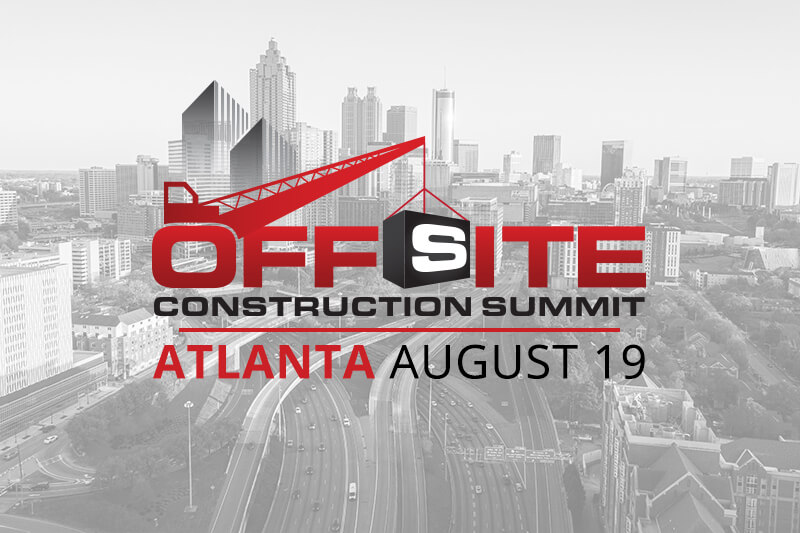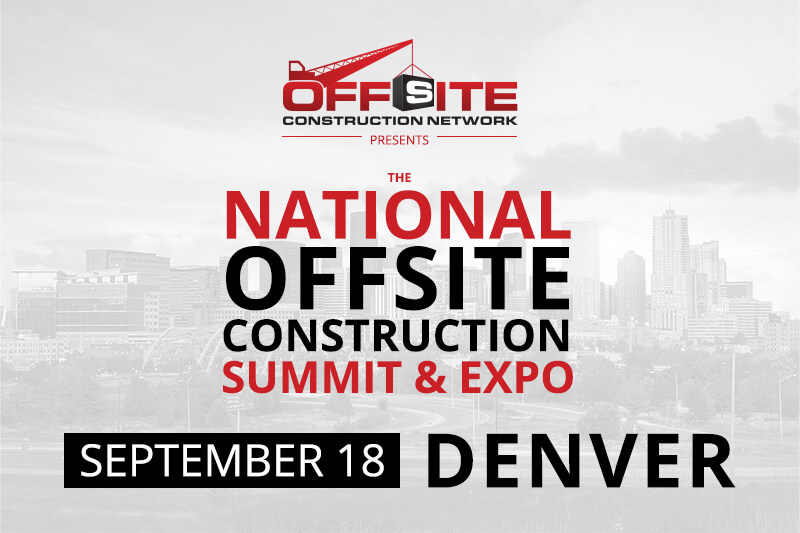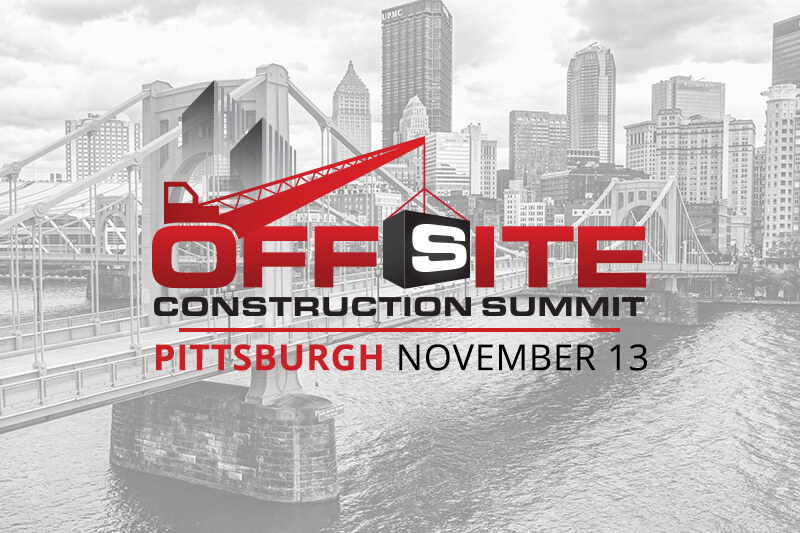
Key Legal Considerations When Using Offsite Construction
An interview with Ron Ciotti, partner at Hinckley Allen.
Noted offsite industry attorney Ron Ciotti, partner at Hinckley Allen, joins Tom Hardiman to talk about important—but not always considered—legal aspects of offsite construction projects.
Ron’s practice is focused on all aspects of the construction industry. He has substantial experience representing general contractors, construction managers, subcontractors, prefabricators, modular builders, suppliers, and owners/developers in a wide variety of construction-related matters.
Interview Transcript
Tom Hardiman
Hello, and welcome to Offsite Insights. I'm your host, Tom Hardiman. And I am pleased to be joined today by with Mr. Ron Ciotti from the law firm Hinckley Allen. Ron, welcome to the show. How are you doing today?
Ron Ciotti
Doing great, Tom, how are you?
Tom Hardiman
I'm doing well. Thank you. Hey, before we get started with today's topic, if you wouldn't mind, take a few minutes and just give us a little bit about your background and your firm. And then we'll jump into the show.
Ron Ciotti
Sure. Hinkley Allen, I'm a partner in Hinkley Allen. We're a business law firm, with offices actually throughout the country, from Boston, New York to Chicago, in a lot of places in between. And I, my practice is completely focused on construction, as is our construction practice group. We have one of the largest construction practice groups in the country from a legal standpoint. And I many years ago began to focus more on modular building and prefabrication. As it became, what I think, is the next wave and construction and something that is not only here to stay, but will continue to proliferate within the construction industry.
Tom Hardiman
Well, I know we were excited...Ron, we met that about four or five years ago, maybe. And it's always exciting for us when we have someone with legal expertise, who also understands the modular and offsite industry. So I know you've spoken at MBI's World of Modular conference several times, and you're going to do so again this year. So we appreciate you sharing your expertise with us, which is why we're here today.
We've been able to work together on webinars and presentations and even some documents. But what we want to share with our with our viewers is just from a legal perspective, Ron, what are some of the key differences between a site-built project and a project that incorporates prefabrication to some degree? Share with us some of your, your, you know, considerations that an owner might need to look at?
Ron Ciotti
Sure. And this is one of the reasons I got into this field on is I think this area is fascinating. It is the legal issues that I don't think most construction parties understand or recognize. And in fact, they shouldn't be embarrassed because most attorneys don't understand or recognize the differences between a project that is built on site versus a project that is built off site--or even components of a project that's built off site. And the real significant construction contracting and what legal issues it creates. And I think that I've always been drawn towards fascinating legal issues.
And it's what drew me towards this, because when you're really thinking about, you know, modular building, and nobody knows better than you, Tom, you're talking about a hybrid process, you're talking about a process that includes both what we normally and typically understand as manufacturing, but we mix it with really sub-contracting services. That's what you know, how we look at it on a construction site. So, you know, contractors are used to dealing with subcontractors and subcontract agreements and construction agreements. And manufacturers are used to dealing with manufacturing agreements, which are really purchase orders. And so when you start to put those together what you don't realize is that there's two different bodies of law that cover both of those.
Service agreements, which is a subcontract agreement or typical construction agreement is governed under what we call common law. And a manufacturing or purchase order of goods is under what we call the UCC, or the Uniform Commercial Code. So you're taking them and you don't "boom", let's mix them together and figure out what we have. And that's really dangerous when people are putting out a purchase order for a process that's a hybrid, or a regular standard subcontract agreement form. That's a hybrid process, because it doesn't fit. It doesn't fit either one independently.
And I think one of the things that that, you know, prefabricated modular builders is they're working through this and trying to understand, "okay, I understand now that it's a hybrid, and I understand it doesn't fit in either, but what do we do?"
I think one of the things they have to start thinking about when they talk with their counsel, is all of the different issues that result from that hybrid and those issues can be the, you know, first off the differences they need to understand from their attorney. "What are the differences between the UCC, if I'm working under it as a purchase order versus the common law? And if I'm working under that as a with a standard agreement? And how are those going to impact my business?"
You know, I'll give you a great example of the, you know, acceptance level, under if you're working as a straight manufacturer, and you use an a purchase order for a component that's being integrated into the project, or modular home that's being brought on site. The fact of the matter is, that right now is under what's called the perfect tender rule under the UCC, if it's just a good if that's how you've contracted it, as just a good. And so what you now have done to yourself is under the perfect tender rule, the purchaser of that good is now now gets to look at it as, if you did not comply with if one of those units does not comply with what they what they purchased, they can reject all of the units. Oh, that's a pretty significant issue...
Tom Hardiman
That that can be large.
Ron Ciotti
Right. Versus under common law, if you're providing a service, you know, providing that under a service, then in you're considered a subcontractor, then now all of a sudden, all you have to do is you have to rectify your issue. So if you if you perform improperly in one of the units, you need to fix it. But it's that's a big, big difference.
Tom Hardiman
Just one issue there that can ruin a project. Or bankrupt the manufacturer, you know that.
Ron Ciotti
It's exactly right. And that's why I keep looking at this and going these guys, you know, I love them to death, but they have to understand the legal differences. Nobody, nope, no contractor, no prefabricated, no modular builder, no manufacturer wants to deal with the law. Nobody wants to get involved. That's what lawyers do. They, they hate that they don't even think about it. Unfortunately, because of the impact it can have on their business, they need to understand it, and they need to do it right up front so they're covered and protected.
I can tell you, as you get into it, you get into it further, the warranties that they take on are very different under both. And if you don't contract it right, and you don't specifically and expressly decline certain warranties, again, you're going to be accepting warranties under either of the laws if you don't contract it properly within your contract in to address those warranties expressly.
Statute of limitations is a dangerous area, because you may have in your own state, different statute of limitations relating to your documents, how long you have to keep documents, if you're a service provider versus a goods provider. Again, what's that hybrid process, you're going to have to outline that in your contract to bring you into the statute of limitations. And so you have predictability in your business relating to that liens...and actually before I move from statute of limitations. And I apologize, I get into this.
Tom Hardiman
This is why we have you here!
Ron Ciotti
The statute of limitations also liability wise, because you're off site, you could be in a different state, you probably are in a different state than where your modules are going. Your components are going whether it's a full completed, you know, modular built home, or whether it's a project component of the boat project that's being integrated into a commercial tower. It doesn't matter. If you're building an off site, if you're building in a different state, the statute of limitations may be different between the two states in although you may think you're protected under the statute of limitations in your state, you may not because that you may have a different liability, statute of limitations in the state in which the project is located and you can be brought back in.
So again, know the statute of limitations in the different states that you're working in again, and address it in your your contract to the extent you can.
Liens. You may not have lien rights. In certain states, your subcontractors may certainly have not have lien rights. And what I mean by your subcontractors, the subcontractors on the project may have lien rights, the subcontractor to the prefabricated or the module builder may not. So again, you have to take a look at t the state you're the project is in to make those determinations, and to address that.
Maybe different OSHA implications. You may not even have any state OSHA laws in your state, but there may be OSHA laws in the project state. And the question is, do they apply to you, you have to understand that know that and understand figure out exactly where you fall in that.
Lots of different issues, including licensing. I don't know if you've thought about this, but the fact of the matter is, licensing needs to be taken into account when you're talking about prefabrication and modular building. If again, you're in a different state from the state in which the project is taken care of, are you licensed to perform the services that are going into your components in the state in which the project is located?
And I will tell you, and I know you and I have talked about this before, there's a famous case in New York, where the New York City building department had allowed an offsite contractor in a different state to perform certain mechanical work on the components that were being done off site. Well, the unions didn't exactly like that, because the prefabricated modular builder in a different state wasn't licensed us in New York City. And so they brought an action against them, they brought Nash national against the New York City Board Department of Buildings, saying "you can't allow that to happen". And the court actually upheld it. The court said "Okay, no, it was okay for the the New York City Department of Building to allow that contractor outside of the state to perform those services, because the licensing in that state didn't require. Don't count on that, in every instance, you don't...
Tom Hardiman
You don't want a judge determining the success of your project!
Ron Ciotti
That is exactly right. So again, you want to address that, you know, in your, in your contracts, make sure that you're looking at QA QC, QA, QC, as you guys know, very, is very different here. You know, QA QC on a stick built on site project is simple, you know, the PMs going around the super the GC is going around, he's looking at how that work is being done, how that installation is going what's, what's the process, and whether it's being done properly and in compliance with the plans and specs.
Here, you're building off site, potentially in a different state. And potentially, in a manner in which is a proprietary process. You may be building in a in a warehouse with a process that you develop that you feel is proprietary, and you don't want the GCs just popping in any time with, you know, loads of people and crawling all over your process and your warehouse, looking at the QA QC. So you need to address how that's going to be done, whether there's going to be some full warning to QA QC visits, who's going to be allowed in, whether there's going to be a confidentiality agreement relating to the viewing of any processes, etc., nondisclosure agreement and NDA. So lots of different things to think about. I know I'm throwing a lot out there. But there's just...
Tom Hardiman
Well you are and I think I counted maybe six different legal considerations that may or may not be different than than the site built world.
And, you know, we we've talked and I've said often that everything about construction was written for a site-built world, not an off site world, including the financing and insurance and certainly the legal. I don't think our modular offside industry was really considered when a lot of these laws were written or these licensing requirements. So I guess, on the plus side, and you and I worked on this for a couple of years, there is now a standard contract available through ConsensusDocs that will help navigate this. Do you want to touch on that a little bit?
Ron Ciotti
Sure. Yeah, no, I think that that's a great idea in the fact that I think it's a great benefit to to our industry of prefabrication and modular building.
ConsensusDocs put together a really great committee with attorneys, contractors, modular builders, and yourself and myself... people from across the country, different jurisdictions, insurance peopl...to develop a contract that was really for this industry that took into account these these issues that get raised in a hybrid process like modular building. And so it's a fantastic form contract, if I get do get to say so myself, because of our participation in it.
But it's, it really is a great contract to utilize. It does. It's not a one size fits all I don't, I don't recommend you download it, sign it and send it in. You have to go through it, understand it. By the way, I my pet peeve in this industry has been I've been doing this for over 30 years. My pet peeve in this industry is guys that say, you know, just give me a contract Ron, I'm, you know, I'm just gonna sign it send it anyway, I you know, I don't get into that stuff, we do it right, etc.
You have to know your contract. If you don't understand your contract, and you don't even understand your own your own playbook. I mean, that's that's how I look at it. I you know, if you don't know what's out there, you don't know the game plan, you don't know your playbook. So the fact of the matter is: read through it. It is thick, it is long, but it is hopefully understandable. We didn't use a ton of legalese in it. We tried to make it very understandable, but figure out what works for you and what doesn't, and manipulate it in a manner in which it fits your company and fits what you're providing. And really, it's on a project-by-project basis as well, you know, what does it fit that project? You're gonna want to, you know, again, revise it, but it is a great document, it's a great place to start.
Tom Hardiman
I think the good thing about it, at least is written for our world. And it forces you to ask those questions. You know, who is responsible for x? Who's responsible for y? And it makes you answer those questions, and which can eliminate a whole lot of legal issues on the back end of a project. So I think it's ConsensusDoc number 753, if I'm not mistaken, under the subcontractor package. So we are we are underway and working on a series of ConsensusDocs, with that group on prefabrication, off site modular construction. So I'm very much looking forward to getting some additional legal guidance out there as well.
Ron Ciotti
Yeah, I think that's the exciting part of this. As much as it was tremendous to get the first in the nation, contract between a modular builder, a prefabricator and a contractor, it's just as important to understand that this needs to be an entire family of documents, because that doesn't fit every relationship that a modular builder has.
In fact, the next one, as you know, because we're working on it right, right now is one that's probably equally important, which is the prefabricated modular builder contracting with the owner directly. And so that is that has its own issues, although a lot of them will be more similar to a standard subcontract agreement. But it still has some of the issues we just discussed. Because it has to, it has to cover these issues.
And so it's exciting that I think the the the modular building world is about to have a set of documents that it can go to, and not try to take one and sort of put that, you know, round peg into a square hole. I think it's going to be a fabulous set of documents and ConsensusDocs. I give the nod to them for you know, really heading up this this charge.
Tom Hardiman
Yeah, it was no easy, easy task. It was a couple years in the making. And it was, as you mentioned, a lot of experts weighed in on that from a lot of different fields.
Ron Ciotti
Correct. And I will say and I'm going to give, you know, the Modular Building Institute a tremendous tip of the hat here, because, you know, not only were you involved heavily in the drafting of it and provided some tremendous insight. But, you know, MBI's members were also participated in the in the committee and were really invaluable, because it really takes the insight from everybody to put together a great document. You can't just have one group or one attorney or or get put, put it together.
Tom Hardiman
Yeah. And I think you as the chair of it made that abundantly clear early, "we're not going to have a one sided document here or it's no one's going to use it. It's got to be fair to all parties." So I think I think the the document reflects that.
Ron Ciotti
Yeah, I'm excited about and excited about where we're, where we're going with it. And I will tell you lately, it's been interesting, besides, you know, my representation of pre fabricators and modular builders, I have been called recently about issues relating to financing by some lending companies. And I think this is another, you know, maybe this is a whole different segment for us, but they have begun calling relating to security interest in how their lending documents need to be different for modular building and prefabrication. But I will tell you that they are extremely interested. Two different lending institutions, very large ones, want to open up new avenues into financing, modular building, and prefabrication, which I think is tremendous. It's just going to allow this industry to explode that much more.
Tom Hardiman
Well, absolutely. Access to capital is another one of those barriers in the past that we're starting to overcome. So that's, that's great to hear.
Ron, I think you hit on six issues, each of which could have been an hour long presentation easily. But that was not the intent of this interview, we just wanted to at least put some of these considerations or differences on our viewers radar screen. Encourage them to use that ConsensusDoc, when appropriate. Make sure you've got good legal representation. And if you don't, you know, I know a guy here on this call who might be able to help you. Ron, Ron does have a lot of experience in our industry. And I'm sure he'd be willing to help you out if so needed. So he's available to help as well.
Ron Ciotti
I appreciate that, Tom. I do do my work all over the country. I have projects going on right now and over 20 states. And I really, I'd be happy to help anybody. And the one thing I will say is if you want to continue to use the counsel you're using, just ensure that they're just because they're an attorney, don't assume that they understand all of the intricacies relating to a hybrid process like prefabrication and modular building. Very few do.
Tom Hardiman
Well, and even if they are a construction attorney, they may not understand.
Ron Ciotti
That's correct.
Tom Hardiman
Yeah, Ron, thank you so much for for joining us on Offsite Insights. That was a whole lot of information and a little bit of time, we may come back and revisit each of these topics and give them a little more airtime. But I appreciate your time today. And again, if you have any questions or want to reach out to us or Ron, feel free to do so and we can make those connections for you.
But for now, we're going to we're going to say goodbye and wish everyone well. Thank you for watching this episode of Offsite Insights. Take care.
Don't Miss Our Upcoming Events!
Join the leading companies and professionals from across the offsite construction industry at each of this year's Offsite Construction Network events. With summits and expos taking place across North America in 2025, it's never been easier to connect with and learn from offsite construction manufacturers, designers, builders, and suppliers from the United States and Canada.
Subscribe today to get the latest updates on future events from the Offsite Construction Network.



